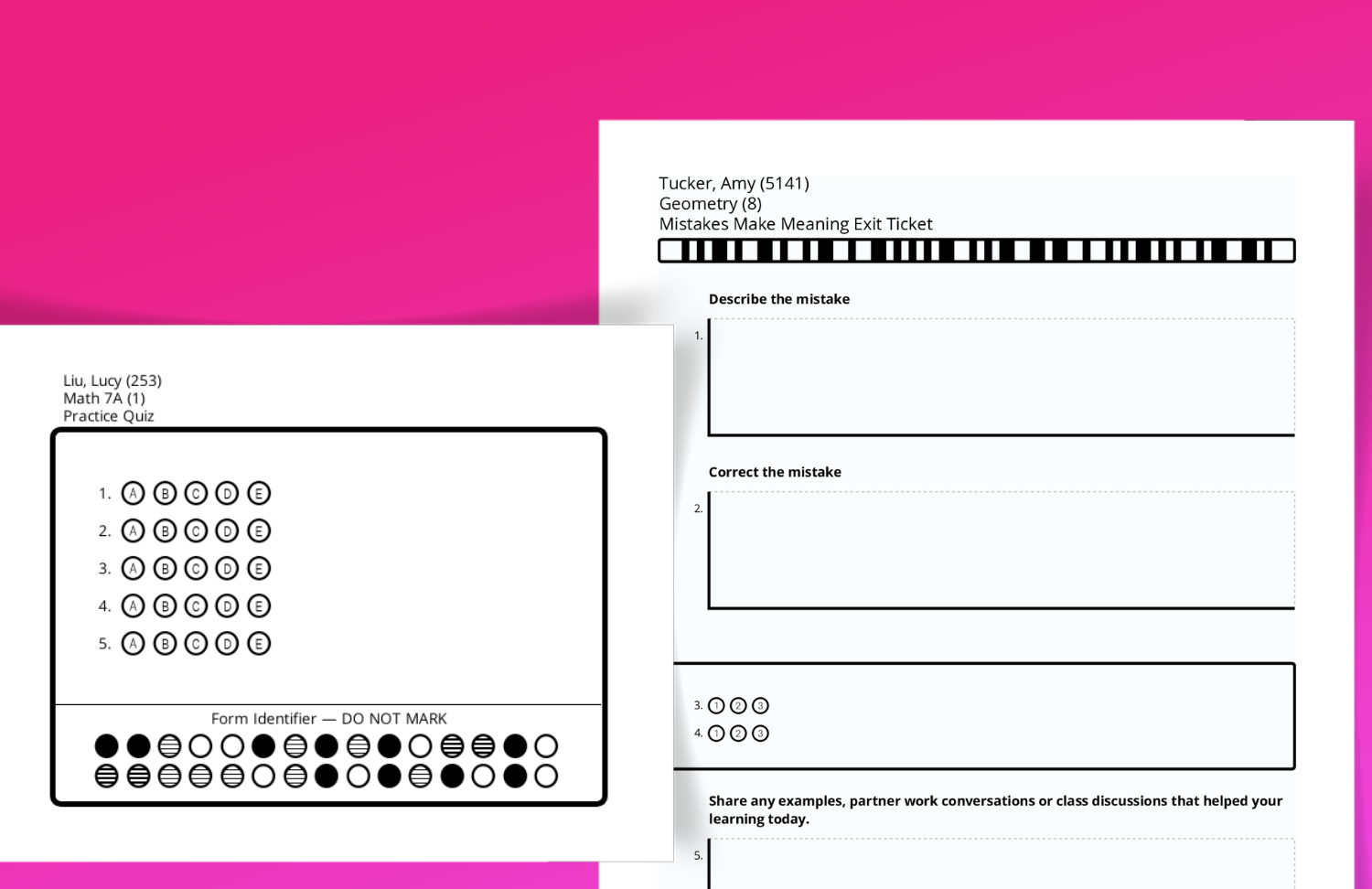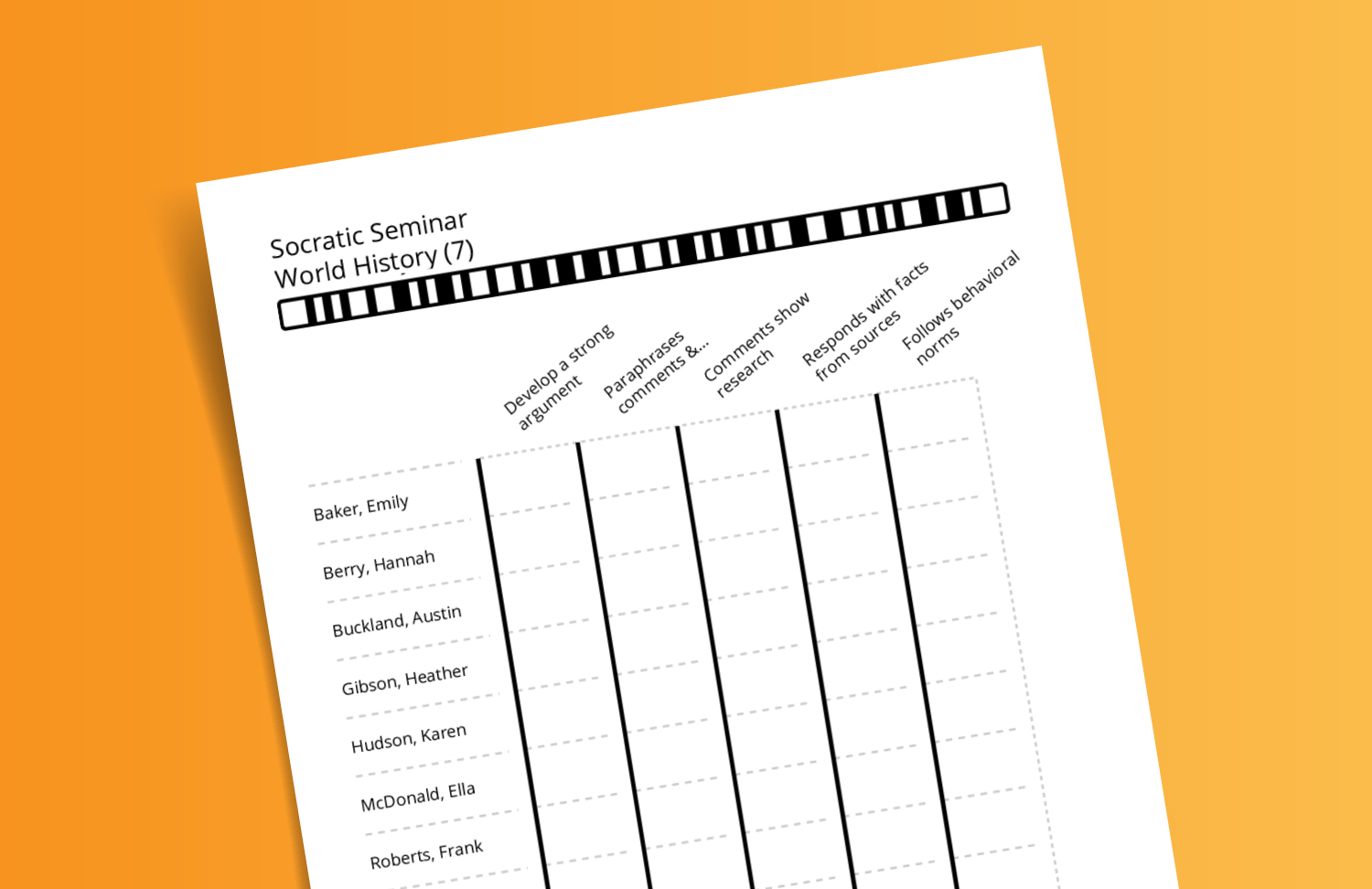Support Growth with Positive Data Practices


How can you cultivate a positive data culture within a classroom, among a teacher team, at a school, and in the district? Sometimes teachers get bogged down by the call for more data, because they equate more data with more testing. But student learning data can be collected in a variety of ways, using a variety of tools and methods. The important element is that the data is informative.
If a test is given and only reviewed once in order to determine whether or not a student did well, then that test is not being used to inform. What change occurred based on that test? Did the teacher adjust a learning strategy? Was the student able to identify specific areas they did well or areas they may need additional practice? Were teacher teams and school leaders able to see areas where additional resources could be provided in order to support the curriculum teachers were presenting?
Quick, Low Stakes Assessments to Check Class Understanding
Having the ability to create quick and simple formative assessments to work along with the curriculum, teachers can utilize short assessment cycles throughout a unit in order to provide direction on how students are learning. These short cycles support the ability to make adjustments to strategies, re-teach misunderstood concepts, or inform when to use extension activities. The data that is collected helps to direct instruction and conversations with the student about their learning and is not just a grade to be collected.
Creating quick, routine exit tickets as a part of the assessment cycle can support an immediate turn-around to address student learning. Short assessments allow quick review so that students can receive timely feedback. And with a consistent routine of assessment, a clearer picture of progress can be provided using longitudinal reports that look at assignments or standards over time.

Adjust exit tickets to use different types of questions. Selected-response questions to check facts and vocabulary. Open response questions for explanations and reflections to determine comprehension and extension.
These shorter, low-stakes assessments help reduce stress for students, since they are quick, typically only address a topic or two, and do not heavily impact the student’s grade. Students are given an early view of their performance, so that they can make adjustments for later assessments and promote a growth mindset.
Match Your Curriculum and Flex to Assess Students Differently
An assessment does not have to be just a test. There are many different strategies for assessing student learning, including performance-based classroom observations. If a class discussion matches a current lesson, an observational assessment can be used to score students participating in a Socratic discussion.
It’s important to create and use assessment practices that match the content and curriculum being taught. If the assessment diverts too far from the lesson, it can be difficult for students to connect to what was learned. Creating lessons that relate to and are relevant for current events, help to further connect students to concepts. By using an assessment solution that lets teachers customize assessments to match the content they are teaching, teachers are able to flex to different topics while still having the ability to collect data on learning.

Create an Observation form to score student during a Socratic Seminar, observing student interactions and contributions.
Build Teacher Agency
Giving teachers the opportunity to teach with content and curriculum they are passionate about, and then providing them immediate access to learning data that allows them to adjust their curriculum, builds teacher agency. Their assessments and data are directly connected with their classroom and how they can adjust practices and strategies.
Having learning data quickly on hand, whether it be for a longer summative assessment or a quick formative exit ticket, teachers can make adjustments to support students right away, without having to wait.

Use the Item Analysis and Class by Question reports to target areas for additional instruction.
Then when teachers regularly meet and discuss learning targets with their PLC and school and district admins, they are prepared with student data and strategies for growth and success. They have the evidence in hand regarding what worked and what areas may need additional support from their teacher and administrative teams. Involving teachers directly in discussing the data, with conversations around identifying learning and teaching challenges, can even be used to increase teacher agency in determining needed professional development.
Share the Data to Support All Conversations
Conversations and idea sharing can provide some amazing insights for supporting student learning. Once teachers have the data in their hands, sharing that data with others to be a part of conversations further promotes a positive data culture. Teachers can point to learning data of interest to talk out strategies and ideas with teacher teams. Using shared assessments, teachers can work together to compare areas of grows and glows linked to the unit or learning target.
Data discussions can also be encouraged among students when the teacher has the ability to immediately share learning data and pinpoint specific areas of success and misunderstanding. Including students in the conversation about their learning empowers students to take ownership of their learning because they are able to target their own specific areas of need. Having students reflect on their assessment data and their learning processes will increase student learning.
Data cultures are not created overnight, but with regular interactions and tools that contribute to data practices without straining a teacher’s time and energy, they can be built. Individual teachers can start with positive data practices within their own classrooms with their students and then further expand to include data practices with teacher and administrative teams.




